Calendar 2023
Twelve paintings for the 2023 calendar of the MPA. All sold as fundraisers for the association. Prof. Gorg Mallia also created a digital drawing, his interpretation of March. Scroll down to see front page and January page.
Twelve paintings for the 2023 calendar of the MPA. All sold as fundraisers for the association. Prof. Gorg Mallia also created a digital drawing, his interpretation of March. Scroll down to see front page and January page.
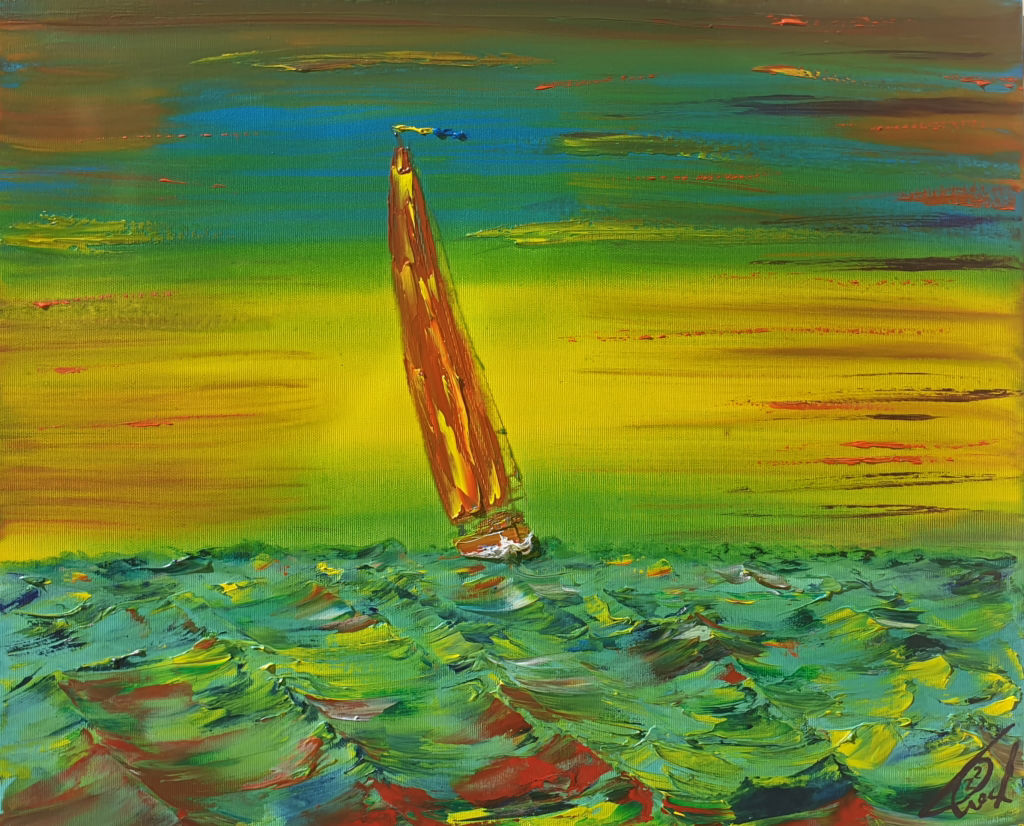
January
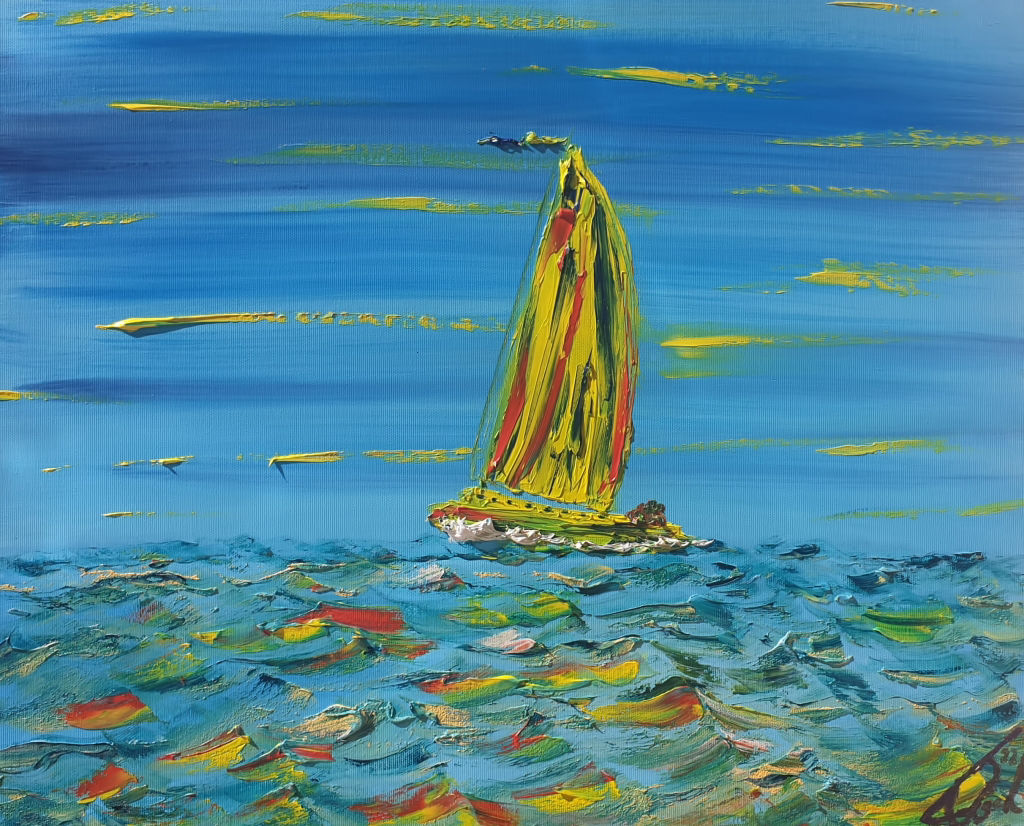

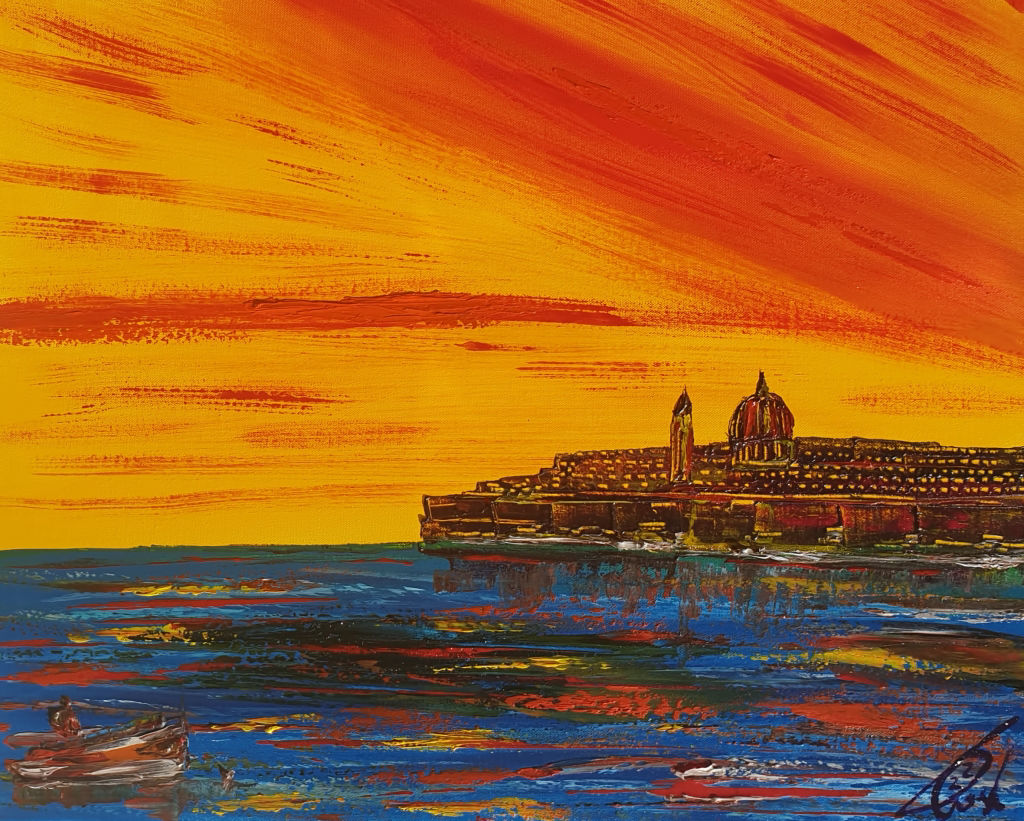
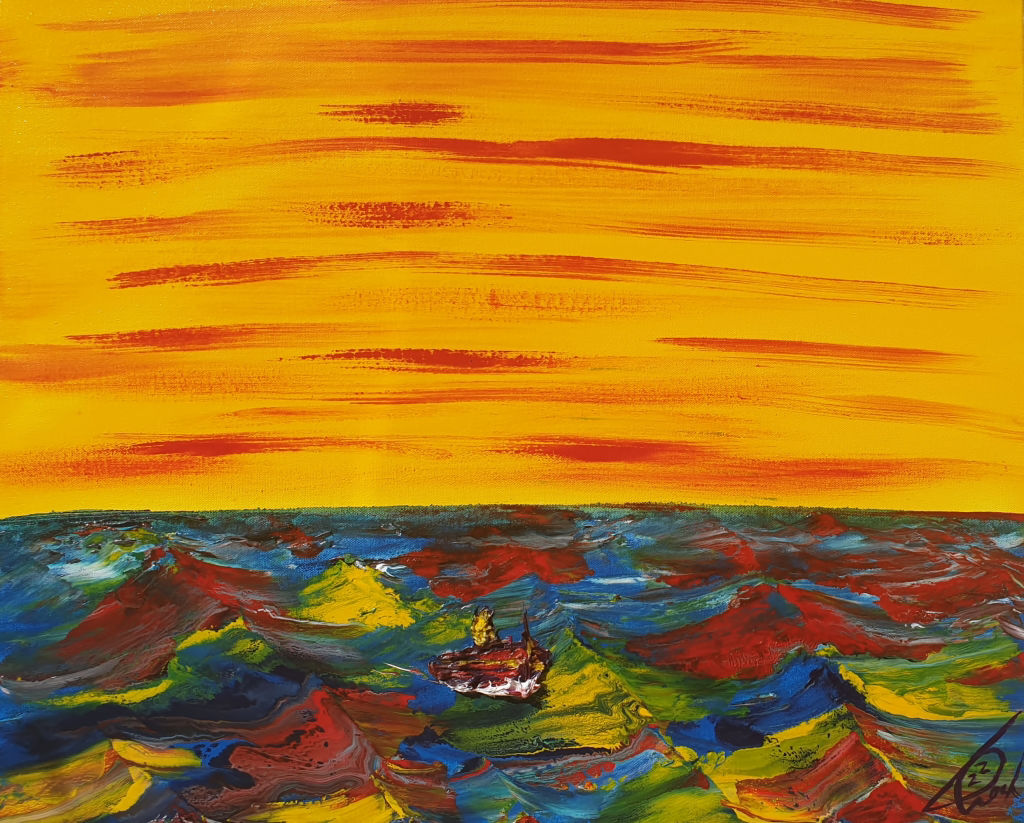



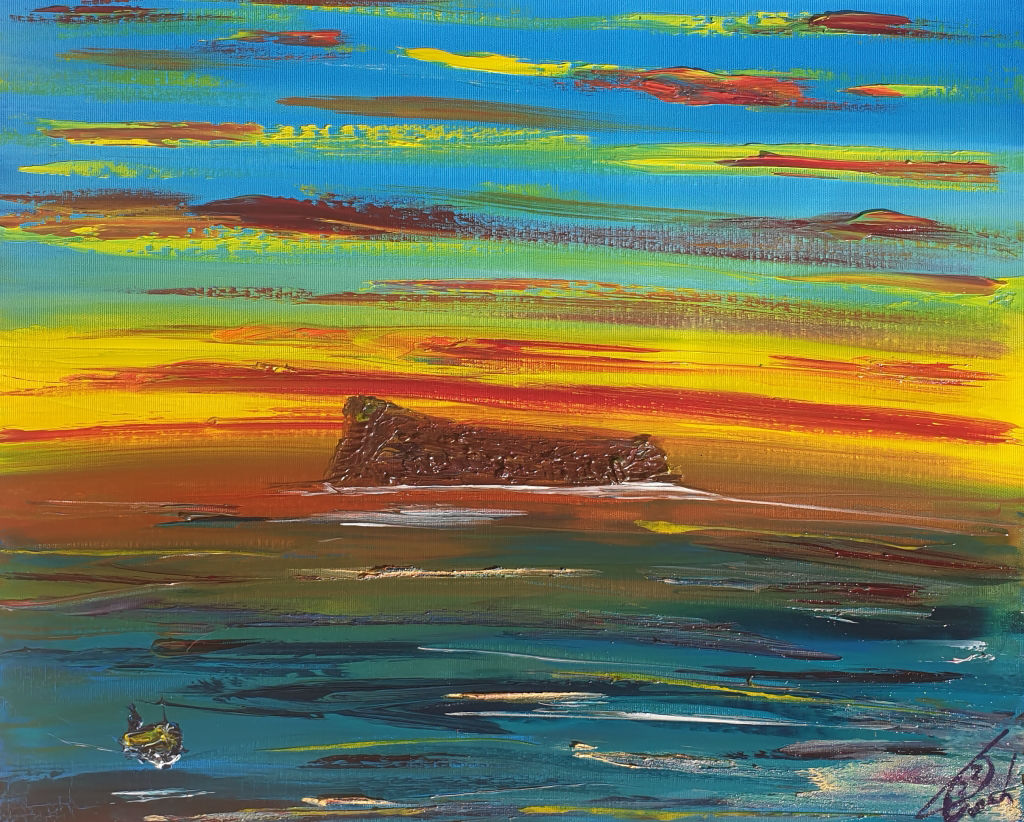

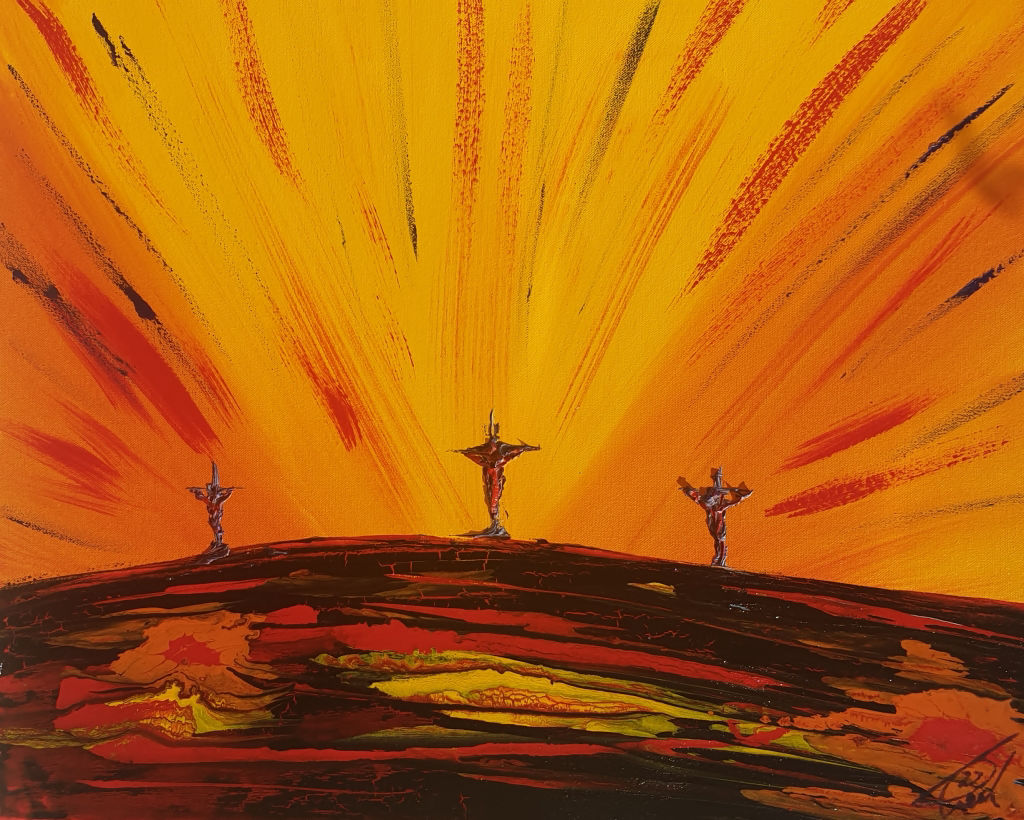

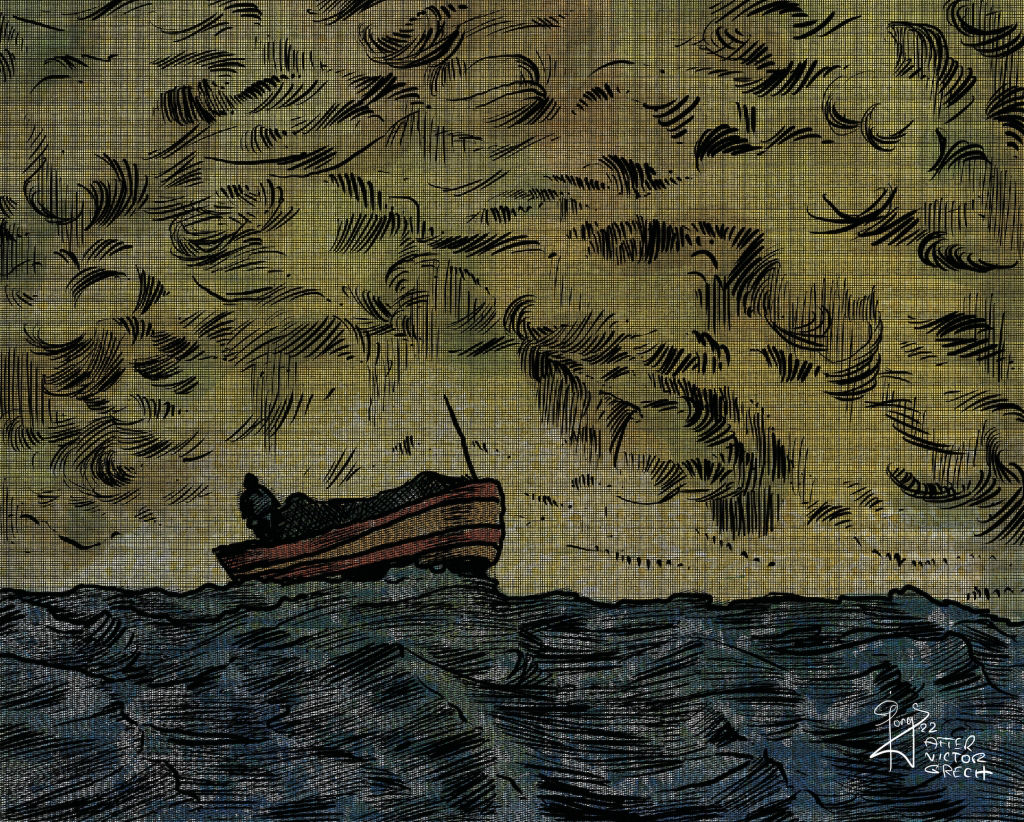
Digital drawing, Prof. Gorg Mallia's interpretation of March.
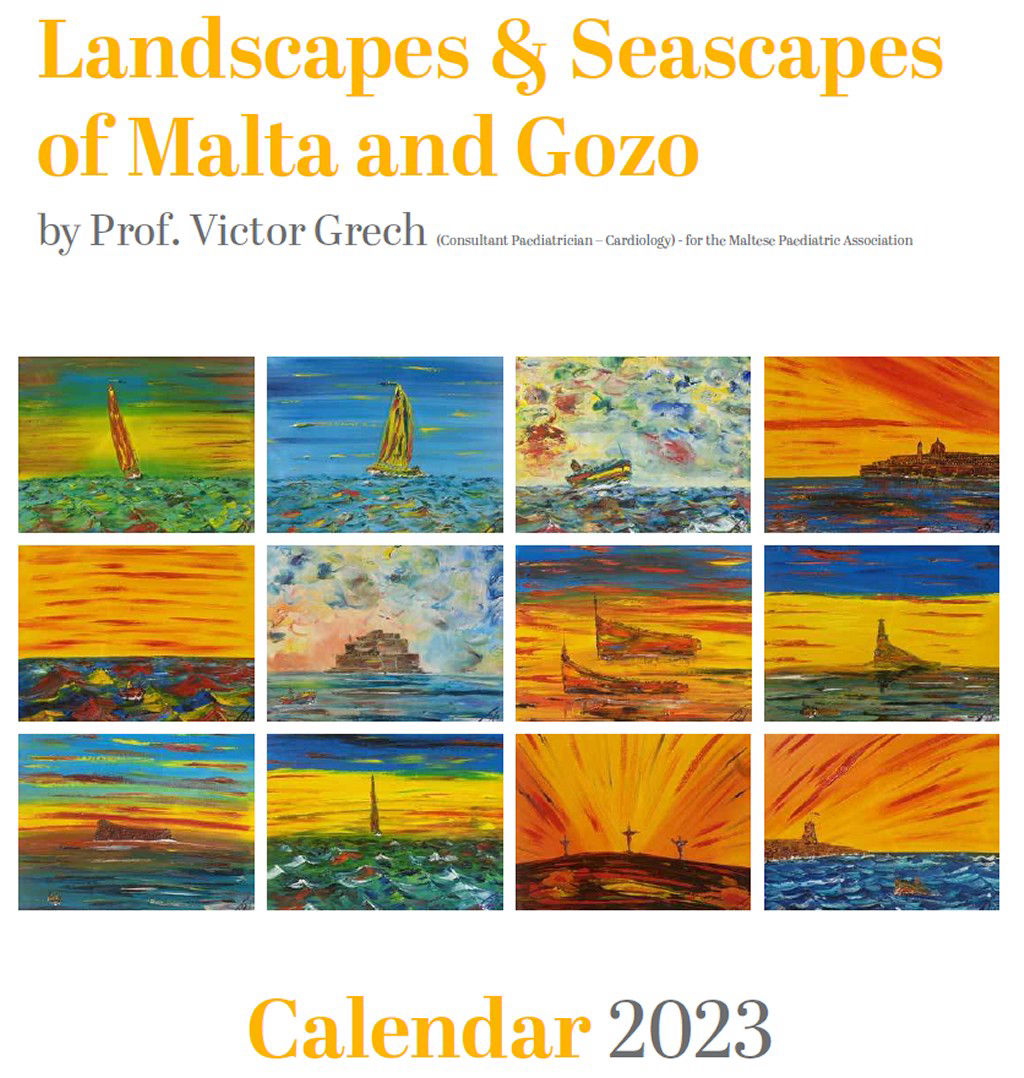
Front cover of calendar
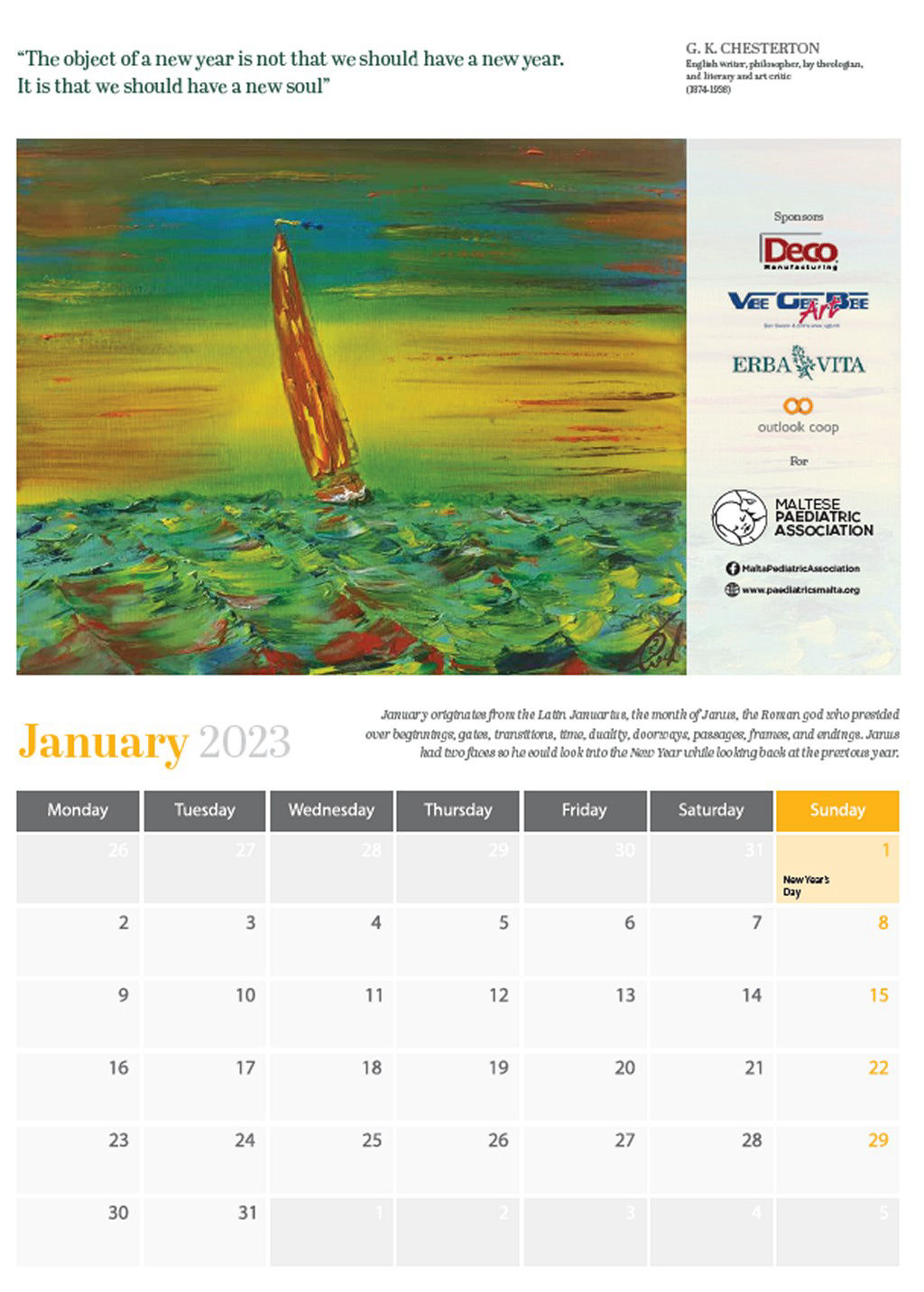
January - sample page




How to build a website - Check this